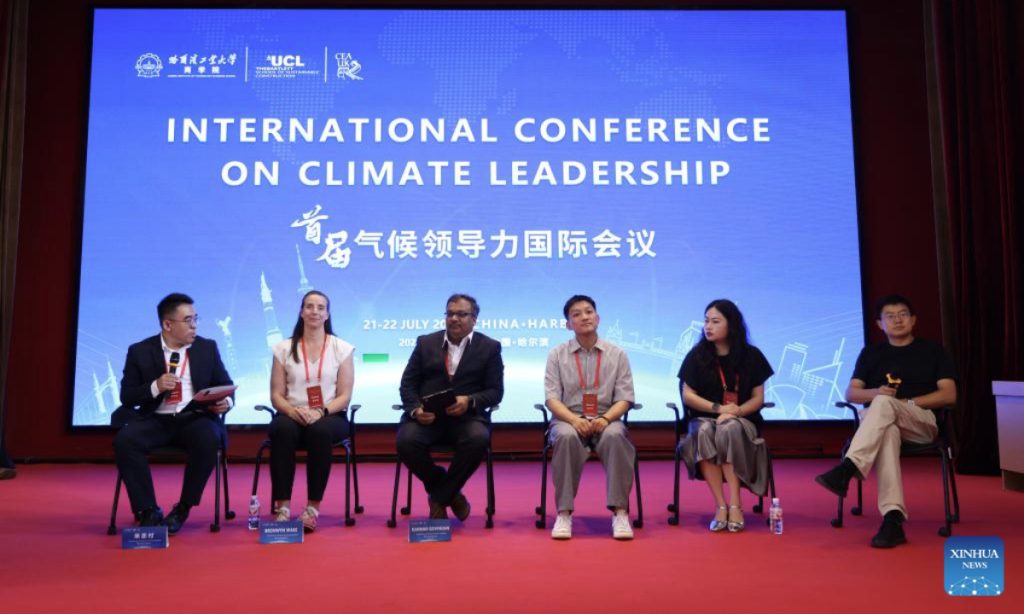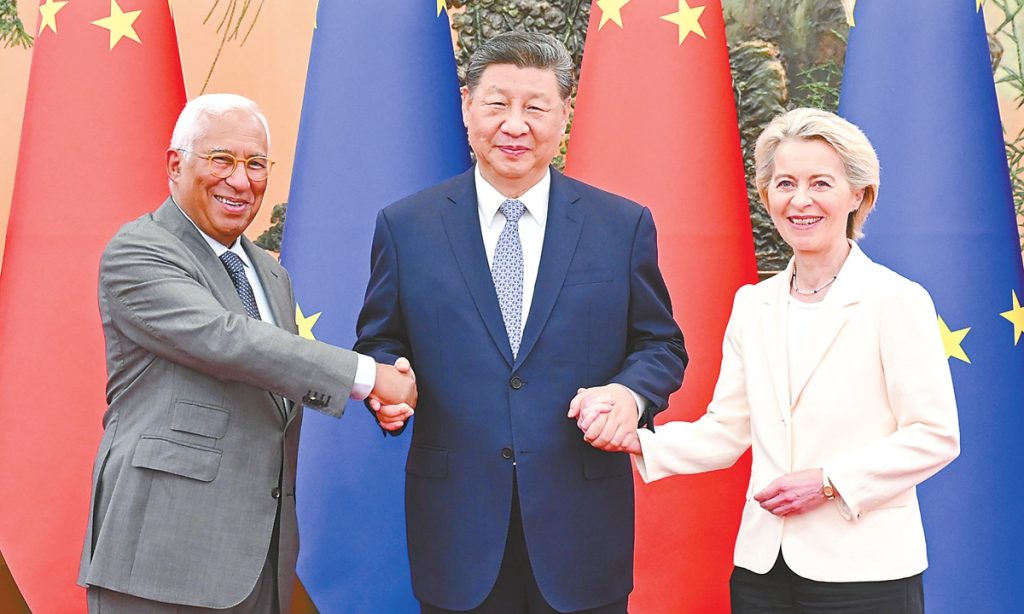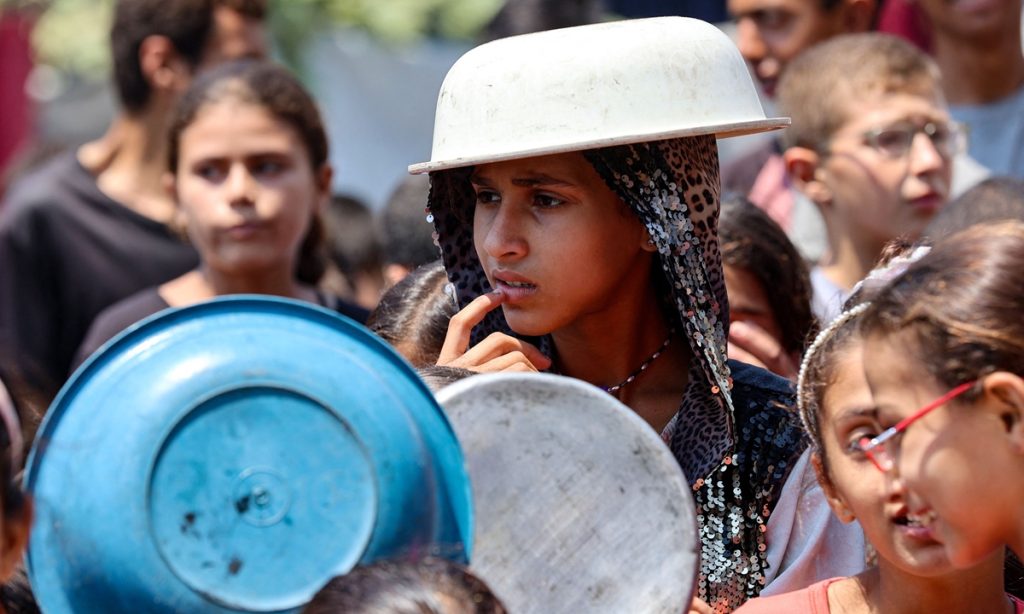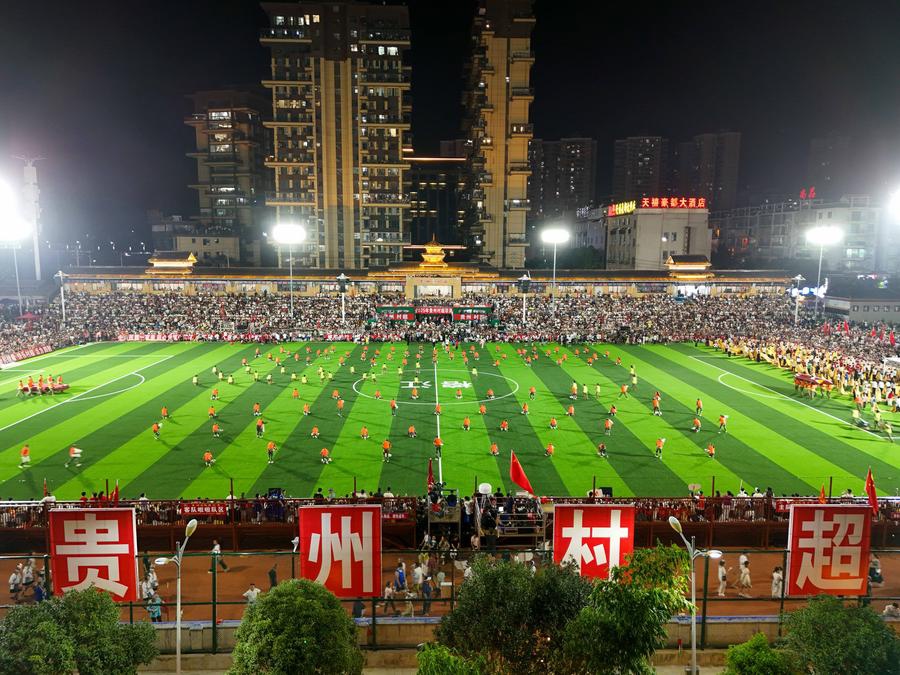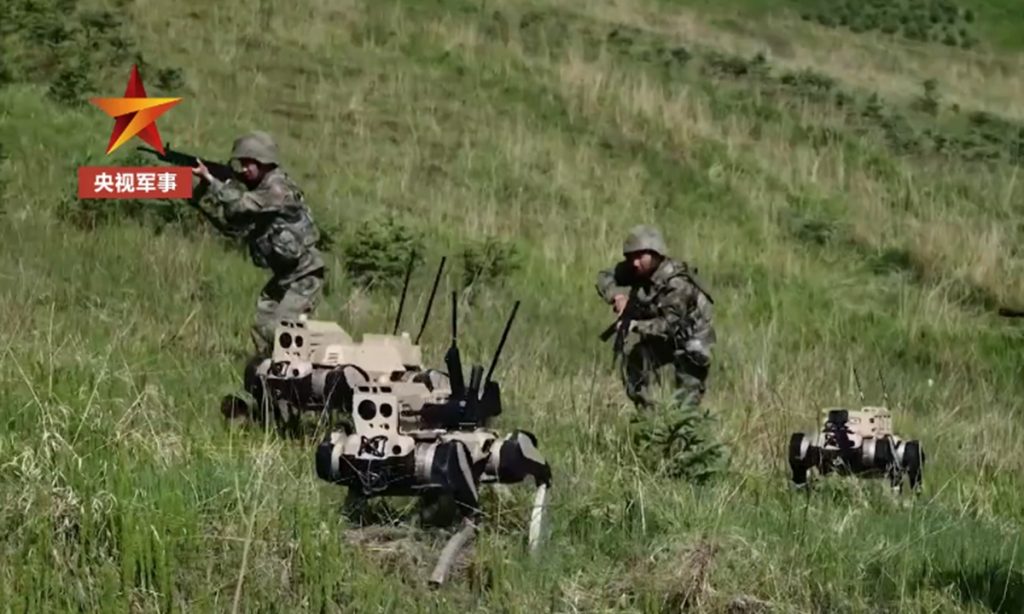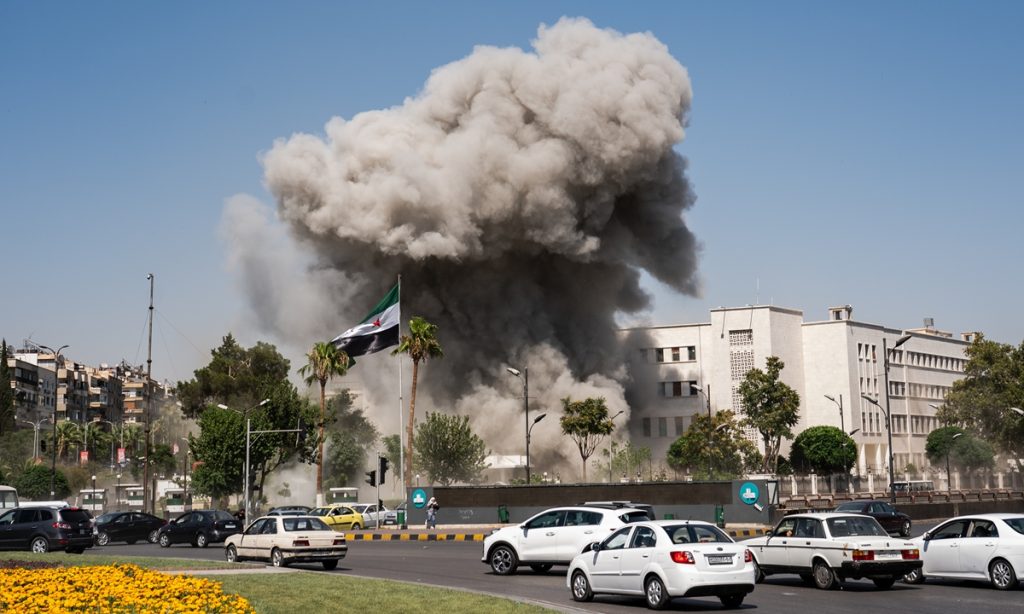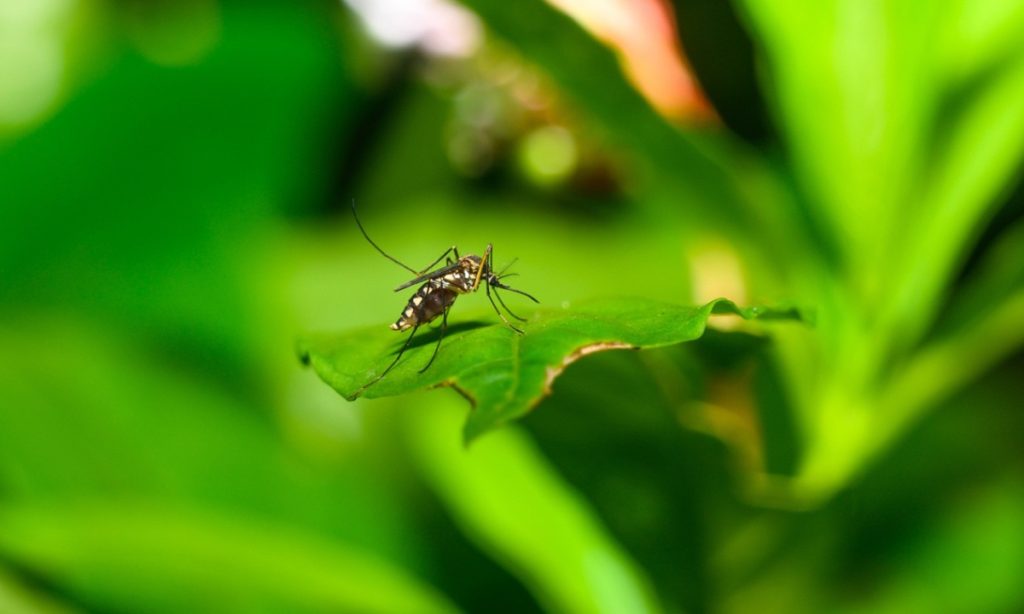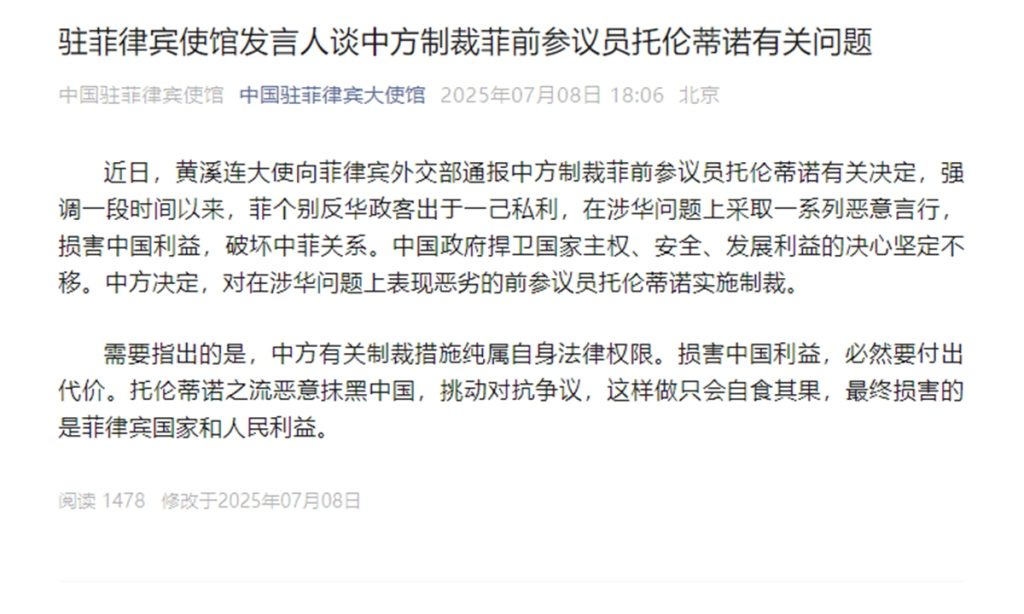China announces countermeasures against two EU financial institutions
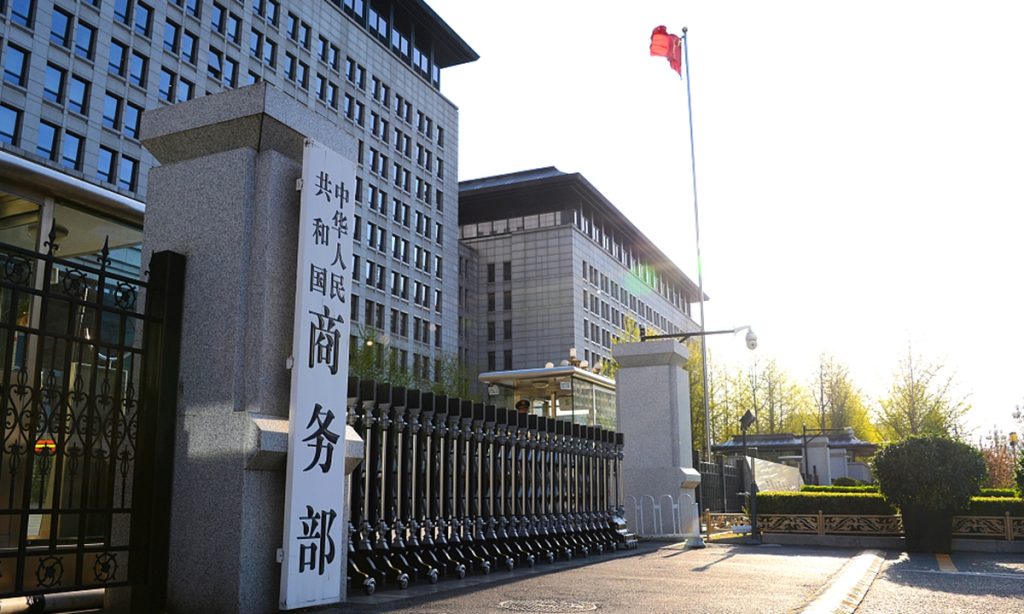
China's Ministry of Commerce (MOFCOM) announced on Wednesday countermeasures against two financial institutions in the EU after the bloc listed two Chinese financial institutions in its sanctions against Russia. The measures will take effect immediately.
Organizations and individuals in China are prohibited from engaging in related transactions, cooperation and other activities with the two EU financial institutions, namely UAB Urbo Bankas and AB Mano Bankas, the ministry said, citing the country's Anti-Foreign Sanctions Law and the regulation on implementing the law.
China's move can be seen as a reciprocal countermeasure - a clear and well-grounded response to the EU's long-arm jurisdiction and unilateral sanctions, said an expert.
EU's unilateral move
On July 18, the EU included two Chinese financial institutions in its 18th round of sanctions against Russia. This constitutes a serious violation of international law and the basic norms of international relations, and severely undermines the legitimate rights and interests of Chinese enterprises, said the MOFCOM on Wednesday.
Responding to media inquiry regarding China's countermeasures, a MOFCOM spokesperson said on Wednesday that recently, despite China's firm stance, the EU insisted on including two Chinese financial institutions on its sanctions list under the pretext of their involvement with Russia, and formally implemented the sanctions on August 9. This seriously violates international law and the basic norms of international relations, severely undermines the legitimate rights and interests of Chinese enterprises, and has a significant negative impact on China-EU economic and trade relations and financial cooperation. China firmly opposes this, the spokesperson said.
To resolutely safeguard its sovereignty, security, and development interests, and in accordance with China's Anti-Foreign Sanctions Law and other relevant laws and regulations, China has decided, upon approval by the national coordination mechanism for countering foreign sanctions, to place the two EU banks, UAB Urbo Bankas and AB Mano Bankas, on its countermeasures list, prohibiting domestic organizations and individuals from conducting related transactions or cooperation with them.
China hopes that the EU side will cherish the long-standing cooperative relationship forged between China and the EU as well as its members in the economic, trade and financial sectors, correct its wrongdoings, and stop undermining the interests of China as well as China-EU cooperation, said the ministry.
The EU's sanctions against Chinese financial institutions on the grounds of alleged ties with Russia constitutes unilateral and hegemonic behavior, Jian Junbo, director of the Center for China-Europe Relations at Fudan University's Institute of International Studies, told the Global Times on Wednesday, adding that China's countermeasures are a justified response to such improper harm.
Jian emphasized that the EU must recognize that unilateral measures only exacerbate the situation.
Countermeasures are reciprocal
EU's move to unilaterally include Chinese companies in its sanctions list and imposing penalties on two Chinese financial institutions based on groundless accusations violates international law and the basic norms of international relations, and has added more uncertainties to China-EU economic and trade exchanges, and undermined the scope and extent of China-EU cooperation, Zhang Jian, a vice president of the China Institutes of Contemporary International Relations, told the Global Times on Wednesday.
China's countermeasures are reciprocal and timely. Hopefully the EU will refrain from taking unilateral measures that damage China-EU economic and trade relations and the principles of international relations, and avoid continuing to escalate the tensions, Zhang said.
Previously, a MOFCOM spokesperson has already made clear responses after the EU announced last month sanctions including certain Chinese firms and financial institutions, the spokesperson said on July 21 that despite China's repeated representations and objections, the EU has insisted on including certain Chinese enterprises in its 18th round of sanctions against Russia and imposed sanctions on two Chinese financial institutions on unfounded charges. China expresses strong dissatisfaction and resolute opposition to this.
China has consistently opposed unilateral sanctions that lack a basis in international law and are not authorized by the UN Security Council. China urges the EU to immediately cease the wrongful practice of listing Chinese enterprises and financial institutions, said the MOFCOM spokesperson, noting that China will take necessary measures to resolutely safeguard the legitimate rights and interests of its enterprises and financial institutions.
China's foreign ministry spokesperson Guo Jiakun also said on July 21 in responding to media inquiry that China opposes any unilateral sanctions that have no basis in international law or the authorization of the UN Security Council. The normal exchange and cooperation between Chinese and Russian companies should not be disturbed or affected. We urge the EU to stop harming the lawful interests of Chinese companies without any factual basis. China will do what is necessary to firmly safeguard the legitimate and lawful rights and interests of Chinese companies, Guo added.
Against the backdrop of complex and volatile international situations, the growth of China-EU economic and trade momentum is beneficial to both sides, Zhang said.
China's move can be seen as a reciprocal countermeasure - a clear and well-grounded response to the EU's long-arm jurisdiction and unilateral sanctions, Li Haidong, a professor at China Foreign Affairs University, told the Global Times on Wednesday, noting that it is aimed at safeguarding the legitimate business rights of Chinese financial institutions.
"The EU cannot expect to harm China without facing any consequences. Its sanctions on Chinese financial institutions, imposed under the pretext of the Russia-Ukraine conflict, reflect the bloc's arrogance and its belief that it stands above others in international affairs," Li said.
